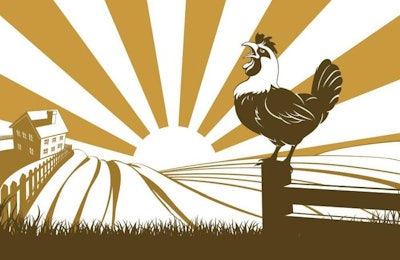
A couple of months ago, I wrote about branding with fictional or ghost farms, and how this had backfired somewhat for a U.K. retailer seeking to convey provenance connotations.
The post generated a fair number of comments, online and direct to my mail, highlighting the negative impact of this sort of branding that does a “great disservice to both consumers and the industry’s credibility.”
Given the interest that the post generated, I am pleased to report that, in the U.K. at least, something is now being done to bust this practice.
Call to account
The country’s National Farmers Union (NFU) has written to formally complain to the National Trading Standards Institute over the use of what it calls “fake” branding by some retailers.
The most high-profile example in the U.K., and the one upon which we shone a spotlight, has been supermarket chain Tesco’s introduction of brand names such as Woodside Farm and Boswell Farm.
The NFU’s legal team believes that such fake farm branding may not meet all the U.K.’s relevant legal requirements, and has called on the National Trading Standards Institute to investigate. Direct legal action is also reported to be under consideration.
Something strange
The Tesco range that has caused such upset was introduced in March. And while its Willow Farms range does, in fact, contain 100 percent U.K.-raised chicken, the other Farm brands source their product from as far afield as Morocco and Chile, despite branding considered to evoke the British countryside.
When attention first fell on Tesco’s farm brands, the company defended their introduction pointing to additional country of origin labeling. However, an NFU-commissioned survey found that at least three in five respondents who said that these farm products in their view were “definitely” or “probably” British would feel misled if this was not the case and were told that the product could be from another country.
The NFU has spoken to Tesco directly, and is urging all retailers to consider the results of the survey.
Whether the NFU will be able to vanquish this sort of practice remains to be seen, but it has at least secured a commitment from one major retailer that, where it does use fictional branding, it will at least source product from the country that the farm name may suggest.


















